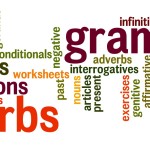Master Grammar of Any Language with Deliberate Practice

I don't like waiting. It's not that I can't be patient - quite often, I don't see the point. Especially in the world of language learning, the typical response to any question seems to be, "it will come with time" or "you will learn it subconsciously."
It's especially true for grammar.
If we exclude just a handful of enthusiasts, we can say that learning is one of the least favorite activities of most language learners. It's a big, dark, and ugly maze. You have to learn how to handle it. Otherwise, it will chew you up and spit you out. And then crap on your face while you are sobbing pitifully.
The collective knowledge has it that you need plenty of time to learn your way around it. You have to fumble about in the dark until you finally crawl out of it. The whole process takes a heavy toll on the language learner's motivation.
But it doesn't have to be like that. The entire process can be accelerated at least several times, thanks to the deep learning (a.k.a. the deliberate practice).
It's the methodology that has been used by the world's top performers for over three decades. It can help you break grammar into easily digestible chunks. In other words, deep learning provides you with a step-by-step blueprint to master grammar of any language. It can replace any teacher if you know how to use it.
But let's start with the basics.
Master Grammar of Any Language with Deliberate Practice
Problems With Typical Approach To Learning Grammar
1. Feedback Is Not (Always) Enough
Try to imagine your average lesson. Not even group lessons - those are ineffective (though enjoyable for some). I mean 1-1 lessons.
Have you ever noticed that even though you often get feedback from your teacher, you still keep on making the same mistakes?
Here is why.
Learning almost always takes place in a chaotic and cluttered environment. At any given moment, there are dozens of dozens of pieces of information fighting for your attention. During your typical lessons, your teacher might correct you dozens of times. "Wrong pronunciation, wrong conjugation, wrong (...)".
You are getting bitch slapped to a pulp by the feedback.
The problem is too much information. If you get too many pieces of information, it's challenging to choose the ones which you should concentrate on — the ones which you will try to act upon.
In other words, to geek it up a bit:
The information overload which may hinder the integration of the new information into long-term memory. - source
"Why not correct a student about just one aspect of the language?", you might think. This thought sounds tempting. And let's be honest - yes, if you correct just one or two things, students will start correcting those mistakes much quicker. But there is a massive downside to this. If you don't make a student aware of other mistakes he makes, he optimistically assumes that they are not there!
That's even worse! By the time you get through previous grammar aspects, your student will already have consolidated dozens of other mistakes!
It's like the grammar-hydra! Eliminate one mistake, and ten others take its place!
2. Passive Learning Is Not Efficient
Passive learning (i.e., reading and writing) won't help either unless you invest significant amounts of time. So yes, it is possible to acquire decent grammar this way. However, if you want to learn many languages, it gets harder and harder to keep up with this input-heavy schedule.
But most of the time, seeing or hearing correctly composed sentences won't make you utter the correct ones on your own. (read more about passive learning here)
Unless you think that reading about surgical procedures makes you a skilled surgeon. In that case - I rest my case. What you have to remember is that the deep understanding of most of the skills comes from using them. You won't just wake up one day and suddenly start spewing beautiful sentences left and right.
3. The difficulty of Acquiring Rare Grammar Constructions
While it might not be a big deal for some, it is annoying for me. Some grammar constructions occur very rarely. So rarely that learning them through context seems almost absurd.
How long would I have to read to learn some of them? How many hundreds (thousands) of sentences would I have to read to find one or two written in, say, past perfect continuous? Crapload. That's how many.
But if I can replace all these hours of reading and listening with just 2-3 hours of the deliberate practice, why wouldn't I?
What Is Deep Learning (a.k.a. Deliberate Practice)?
Before I move on and show you how you can use it to improve your language learning skills, let's try to define what deep learning is:
Deliberate practice is a highly structured activity engaged in with the specific goal of improving performance. - source
Some common characteristics of deep learning include:
Words, words, words! But what does it all REALLY mean?
1. You need a specific goal
Choose a grammar construction you have problems with, and which is useful at the same time.
For the sake of this article, I will use the declination of German definite articles. They are the stuff of nightmares for many and thus the perfect choice.
But that's not over. There is one more thing which you have to remember about this goal.
If you can't commit a given piece of grammar to your memory, it means that it's too big.
Why?
Because the availability of working memory is crucial for implementing expectancy-based strategic actions.
If you fry your working memory, you can forget about effective learning. The most straightforward test possible you can run to check whether this condition is met is to try to reproduce the information you have just memorized. If you can do it without the excessive number of groans, then you are all set.
For the article, let's assume that I want to master the Akkusativ form for "der," "die," and "das." Let's leave plural for some other time.
A quick sanity check confirms that I can comfortably reproduce the declination of the said forms.
2. it requires your full attention
As my beloved Hungarian proverb puts it:
“If you have one ass you can’t sit on two horses” .
You can't do two things at once without sucking at both of them. If you think that you can, then you are delusional.
But what does devoting your full attention mean? It means just one thing.
You should only pay attention to the correct use of the given piece of grammar. If you make some other mistakes along the way - so be it.
"But doesn't it mean that I will start consolidating some other grammar mistakes?". That's a fair question, but no - you won't. The reason is painfully simple.
If you devote your full attention to using one grammar construction correctly, you won't even notice other mistakes. It is how our attention works.
Here is a great video that exemplifies this phenomenon.
Have you seen that one already? Watch that one know.
These videos have a very sobering effect on all the people who claim to possess superior concentration power. And they prove one thing - it's hard to consolidate something you don't see.
3. It's energy-devouring and exhausting but not time-consuming
I am not going to lie to you. Deliberate practice is tedious and tiring. And that's bad news because, in the era of modern technologies, everything must be fun and hip. However, if you want to achieve results quickly, I am sure that's a trade-off you are willing to make.
In a nutshell, you build awareness of a given grammar construction by creating dozens upon dozens of sentences with it. It is what Barbara Oakley, a professor of engineering at Oakland University, Rochester, Michigan, wrote in one of her articles:
"What I had done in learning Russian was to emphasize not just understanding of the language, but fluency. Fluency of something whole like a language requires a kind of familiarity that only repeated and varied interaction with the parts can develop.
Where my language classmates had often been content to concentrate on simply understanding Russian they heard or read, I instead tried to gain an internalized, deep-rooted fluency with the words and language structure. I wouldn’t just be satisfied to know that понимать meant “to understand.”
I’d practice with the verb—putting it through its paces by conjugating it repeatedly with all sorts of tenses, and then moving on to putting it into sentences, and then finally to understanding not only when to use this form of the verb, but also when not to use it. I practiced recalling all these aspects and variations quickly.
After all, through practice, you can understand and translate dozens—even thousands— of words in another language.
But if you aren’t fluent, when someone throws a bunch of words at you quickly, as with normal speaking (which always sounds horrifically fast when you’re learning a new language), you have no idea what they’re actually saying, even though technically you understand all the component words and structure. And you certainly can’t speak quickly enough yourself for native speakers to find it enjoyable to listen to you." - source
So how should you correctly practice deep learning?
What I usually recommend is to create at least 100 sentences with the given grammar construction within the next 5-7 days. But as always - the more, the better.
Make sure that every sentence is different from the previous one and that YOU are the one who comes up with these sentences.
Here are some examples:
And so on. Rinse and repeat.
You have to become a grim grammar executioner. You might not enjoy your job, but you know it has to be done. The great thing about this kind of practice is that you don't need any fancy tools. A piece of paper will do.
Below you can find the worksheet I use to teach this concept to my students. It looks like this:
If you want to master grammar of any language asap, it will help you get there,
4. It gives you feedback
In the perfect world, there is always someone who can provide you with feedback. However, if you stick to the rules mentioned above, you should be able to produce grammatically correct sentences without any, or with minimal, supervision.
It's only logical - if you try to do just one thing correctly, it won't take long before you are fully aware that the construction you are using is applied appropriately.
You are better at monitoring your progress than you think.
Research has showed that individuals are able to monitor, control and regulate their behaviors in learning contexts, but all depends on the resources and the pedagogical approach used by the educators (Agina et al., 2011)
How to Master Grammar of Any Language with Deliberate Practice - a Quick Summary
- 1Choose a small chunk of grammar
- 2Create at least 100 sentences with it
- 3Make sure that you can use it well enough
- 4Move on to another grammar construction
Benefits of Deliberate Practice
I like to look at every field of knowledge, as one might look at the deep lake. It seems enigmatic and sinister. You want to cross it, but you don't know how. It's the same feeling most people get when they see monstrous grammar books. Helplessness, fear, and doubt peek at you from every page of the book.
"How dare you think that you might ever learn all of this?!", they seem to whisper.
And it's true. Without any specific plan, mastering grammar of any language to a decent level might take ages. Deep learning provides you with such a plan.
Here are some advantages of this kind of approach:
1. It concentrates your attention
Your attention is restless and gets bored quickly. Like a small child or a merry drunk. You need to learn to tame it. And it is precisely what deliberate practice does. It focuses your attention on one thing and one thing only. It is especially important because
"Attention constrains learning to relevant dimensions of the environment, while we learn what to attend to via trial and error." - source
2. It's Time-Efficient
Concentrating your efforts on just one thing means one more thing - you save a lot of time. Don't want to wait till your butt overgrows with moss, and you look like Keith Richards? Then the deliberate practice might be right up your alley.
Can I Use Deliberate Practice For Other Things Than Grammar?
Heck yeah! You can use it for almost anything - not only to master grammar of any language.
Trying to improve your pronunciation?
Learn how to produce two tricky sounds from your target language. - Once you learn how to pronounce them in isolation, try to pronounce them, say, 100 times in different words.
Done?
Start practicing these words in full sentences until the muscle memory is created.
Trying to improve your creativity?
Come up with 10-15 ideas (more about being creative here) for every problem you encounter. After 1-2 months, you will start noticing an enormous shift in your way of thinking. I know I did.
Master Grammar of Any Language with Deliberate Practice - Summary
Even if you wouldn't consider yourself a grammar-savvy person, the deliberate practice has the potential to accelerate your learning significantly.
It's not very complicated, but don't let the apparent simplicity of this method fool you. It's just one of the few techniques I have seen in my life, which has worked every time and with every student.
Why not try it yourself?
Question - Have you ever tried to master grammar of any language with deliberate practice? Let me know!
















I was just wondering if you could provide a sample of what you mean by, “A chunk of grammar” for deliberate learning. Do you mean, take one verb and conjugate the heck out of it?
Yes, it can be some conjugation pattern or just future tense. Whatever you feel comfortable with. We have to remember that it will always differ from one person to another. The more languages you know, the smaller your cognitive load while learning grammar.
If you feel that a whole conjugation is too much for you, focus, e.g., on the singular form or even just on “I.” I hope that helps!
Thanks so much for your articles. I really loved your proverb – I had to immediately share it with my wife.
Thank you very much! All the best to both of you! 🙂
Great article but I must say that active learning (talking, reading)is one thousand times much better though if you’re learning a language e.g. you listen a few times to recording paying max attention a then you can listen to it when doing sth else because all the phrases which you’ve just learnt are repeated again and again and also I must add that when I do so those phrases come faster and easier to my mind but anyway don’t believe I those passive listening courses it’s just BS it’s extremely ineffective and you just waste your precious time pls and don’t fall into those mimics First you have to acquire all the basics(grammar pronunciation ability to distinguish and differentiate the sounds etc.)all best
Good points, Roger! Thank you for your comment!
Never ever think of closing your site for various reasons 🙂 And by the way, the reason of me leaving a comment here, is because you made a tiny mistake (“Ich haben den großen Hund gehabt”, it should rather be “Ich habe […]”. Nontheless, keep going ! Especially the language base you created is a thing I use a lot.
Silly typo! 🙂 Thank you very much for your comment nd correction ! 🙂
I love your articles. I find language learning a huge delight, but at the same time a very difficult mission. You are almost the only one who writes the truth about it, and gives real solutions – these that really help. Thank you so much!
Thank you! It really means a lot! Glad you’ve enjoyed it 🙂